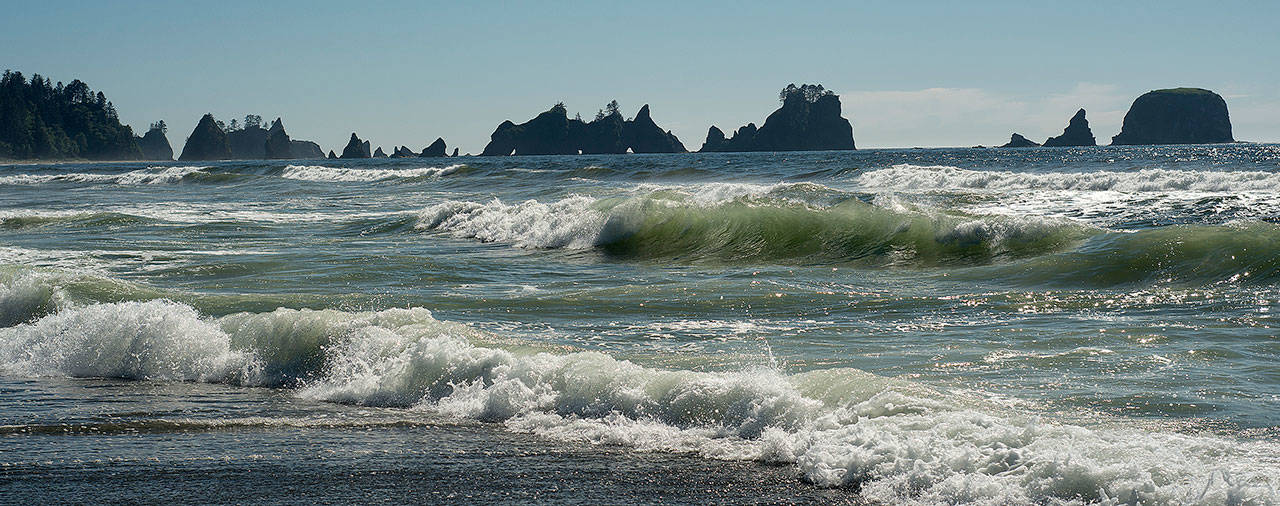By The Herald Editorial Board
Since the 1960s, about $22 billion that was supposed to buy land for parks and wildlife reserves; preserve forests, shorelines and other natural areas across the nation; protect historic sites and battlefields; and develop state and local parks, trails, playgrounds, ballfields and other recreation opportunities, has been diverted by Congress to other uses.
It’s not that no money was appropriated by Congress for the Land and Water Conservation Fund that Everett’s Sen. Henry M. “Scoop” Jackson and others helped create in 1964. In all, about $17 billion has helped protect more than 7 million acres of parks, trails and public lands. But rarely since its inception has the full $900 million been made available each year to the fund as the law intended.
In Washington state, the fund has invested more than $675 million since its inception to expand and protect Rainier, Olympic and North Cascades national parks and smaller preserves and parks closer to home such as Ebey’s Landing National Historic Reserve on Whidbey Island and Bothell’s North Creek Forest, a 63-acre forestland that provides a green oasis for the residential neighborhoods that surround it.
It’s important to note that those billions aren’t taxpayers’ dollars. The Land and Water Conservation Fund takes its revenue from the royalties paid for offshore oil and gas extraction, in effect using a small portion of what is removed from the nation’s resources and putting it back into the land for the current and future enjoyment of all.
In recent years the program has been threatened by partisan arguments about the nature of public lands themselves, twice seeing its authorization lapsed and its funding idled. That changed earlier this year with a surprising bipartisan agreement by Congress that permanently reauthorized the LWCF, part of a monumental package of public lands legislation.
But it’s a two-step process for the conservation fund. While it is now reauthorized, and won’t again risk expiration, Congress now needs to assure its funding beyond the current practice of annual appropriations that too often resulted in some of its deserved funding being diverted.
Legislation in House and Senate would guarantee the funds’ $900 million annual allocation, removing the chance the money could be siphoned off. The bipartisan legislation has support from the state’s congressional delegation. Sen. Maria Cantwell, D-Washington, was one of the Senate bill’s prime sponsors. In the House, Reps. Suzan DelBene, D-1st District, and Rick Larsen, D-2nd District, are among five co-sponsors from the state.
Both bills are well-timed. While President Trump’s budget proposals don’t pose the threat they did when Republicans controlled both chambers, the legislation does stand against the latest Trump budget, which seeks to zero out any appropriation to the conservation fund, diverting that money instead to the maintenance backlog at national parks.
Without a doubt, the national parks have suffered from years of budgetary neglect from Congress and past administrations. There is currently a $12 billion backlog of deferred maintenance for road work and buildings, campgrounds, trails, monuments and other facilities at more than 400 national park sites. But as great as the need is to maintain and protect the parks we have, the necessity of adding to public lands and reserves — and providing them the full support they have always deserved — is no less important.
More than 8 million people visited national parks in this state in 2018, spending $506 million in the gateway communities outside the parks. That spending supported 5,830 jobs and added $670 million for the state economy, according to National Park Service figures. Nationwide, more than 318 million visited U.S. national parks in 2018, spent $20.2 billion in local communities, supported 329,000 direct jobs and generated $40.1 billion in economic output.
Those statistics argue for more than upkeep of what we have; they require adding to the parks and public lands that will be of increasing importance to our economy, our quality of life and as a tool for confronting climate change.
“One of the reasons I’m so anxious about figuring this out and getting this right to continue making the investments in LWCF and to take care of the backlog in maintenance is I feel like climate is impacting our public lands,” Cantwell said in a release this week. “And if we don’t have all the tools to best deal with that, then we are going to be challenged.”
Congress has in recent years looked at ways to begin to chip away at the maintenance backlog, including legislation that, like the LWCF, is funded not through taxpayer dollars but from oil and gas royalties. What is removed from the earth and belongs to all Americans needs to go back into investments that protect the parks and public lands we have and adds to that legacy.
Having made permanent the vision of “Scoop” Jackson and others, the Land and Water Conservation Fund needs to receive the full funding that was intended more than 50 years ago. And that commitment to future parks and public lands must be joined by a renewal of our promise to the parks we now enjoy.
Talk to us
> Give us your news tips.
> Send us a letter to the editor.
> More Herald contact information.

























